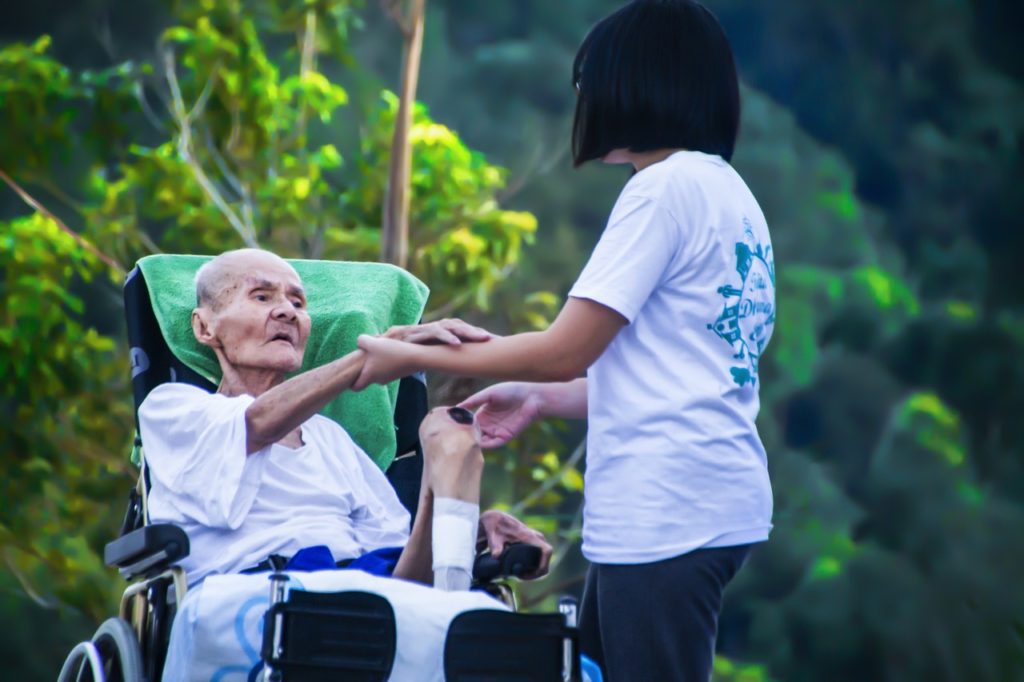Things You Must Be Prepared For Before Becoming An Alzheimer's Caregiver
Caregiving for a loved one with Alzheimer’s is not easy. Here are certain things that one must be mindful of before becoming a caregiver.
Caregiving for a loved one with Alzheimer’s or Dementia can be the start of a long and sometimes exhausting journey. Many first time caregivers looking after an elderly loved one with Alzheimer’s tend not to realise the extent of caregiving work involved before plunging into it. It was no different for Indrani Bose, who has been a caregiver since 1994, first for her ailing in-laws and then for her parents.
“As someone who has been looking after old and ailing loved ones for decades, I didn’t think looking after my mother, who has Alzheimer’s would be so challenging. But it was. The most difficult thing for me was to figure out when she was my mother and when she was not. A simple thing like trimming nails would end up being a situation fraught with emotions – my mom wanting to do it herself like she always did and in the next minute, an accident happens because she doesn’t recognise that a nail cutter can also cut bits of her finger. And the worst thing I could do was to put her in a box, treat her like a child, guiding her every step. She felt, and rightly so, that I wasn’t being respectful,” says Bose who believes that knowing when to retreat is the hardest thing to learn.
Tanvi Mallya, a Neuropsychologist, and the founder of Tanvi Mallya’s ElderCare Services, Mumbai seconds with Bose and says: “The suddenness of becoming a caregiver is hard enough, add to it being plunged into a confusing world of poorly coordinated care, confusing systems, and an expectation that the caregiver could take on full-time responsibilities.”
Bose’s experiences have made her understand that when it comes to caregiving for a loved one with Alzheimer’s, it is always essential to get prepared about certain things that one may not be aware of from before. Here are a few things to keep in mind when you become a caregiver for a person with Alzheimer’s.
Have a strong support system: Caregiving is an emotional rollercoaster and it is imperative that the primary caregiver has a support system – a supportive spouse, friends, anyone to whom a caregiver may be able to trust and talk to.
Maintain a contingency fund to tackle emergency: It is necessary to have a contingency fund to ride out sudden issues, believes Bose., Emergencies can always be round the corner for a senior citizen with Alzheimer’s. From a fall to a cold that turns serious — the possibilities of disasters are galore which is why a caregiver must be well-equipped with financial backups to face such situations.
Overcome stigma, taboo and myths associated with seeking help: Thanks to our conditioning and the stigma associated with seeking help, many first time caregivers mistakenly assume that they will be available to perform innumerable activities: coordination of care, making decisions about the appropriateness of providers, dealing with payments, and keeping the rest of life at bay. “Caregiving is a lonely experience, one which can be taxing on even the ablest and energetic person. Caregivers of patients with Alzheimer’s need to be extremely empathetic, consistent, patient, and creative – all these requirements become difficult in face of the challenges listed above. Thus, it is essential for caregivers to reach out for help and not take up everything on their own,” says Mallya.
Hire paid caregivers at the right time: Traditionally, most people only reach for paid caregiving help when Alzheimer’s reaches more advanced stages, or when the elderly need physical support. However, quality of life (for both the patient and the caregiver) can be better if paid caregiving help can be sought at the very beginning, says Mallya. Doing this helps prepare the patient for the idea of being supported by an ‘outsider’. This can help ease them gradually to be more comfortable when they eventually also need help with bathing and other activities of daily living – which can otherwise be situations where they feel robbed of their dignity.
“Paid caregiving also helps set forth a consistent schedule, which is extremely important for someone with Alzheimer’s. Moreover, it takes a load off the primary caregivers’ plate, allowing them more bandwidth for tasks that cannot (yet) be outsourced and to strike a balance between leading their own individual lives and caregiving,” says Mallya.
Be upfront and inform other people about the condition of your loved ones: Every family has an instinctive reaction to their loved one’s suffering. They want to appear normal to the world. “That is, in my opinion, the worst thing you can do to your loved one suffering from Alzheimer’s. She is anyway suffering from acute confusion and if she’s someone like my mom, a very intelligent, academically gifted lady, a complete intellectual, it is horrible to be in a situation where people, unknowingly hurt her by saying things like, ‘I can’t believe that you don’t remember/know/recognise/understand the conversation.’ It is much better to be upfront and let people know that your loved one is suffering from an incurable disease and whatever she may say or do, she must not be held responsible for it,” adds Bose.
Focus on caregiver burnout: Caregiver burnout is a state of physical, emotional, and mental exhaustion that may be accompanied by a change in attitude often from positive and caring to negative and unconcerned. Burnout can occur when caregivers don’t get the help they need, or if they try to do more than they are able to physically, financially or emotionally. It may manifest through stress, fatigue, depression and anxiety. Some caregivers place unreasonable burdens upon themselves because they see providing care as their exclusive responsibility. Many caregivers also feel guilty if they spend time on themselves rather than on their beloved elder.
“Visiting nurses and therapists, house managers, outsourced help, support groups go a long way in helping manage caregiver burnout. It is important for the caregiver to regularly take time out for themselves, for ensuring they get regular exercise, and indulge in activities they love (maybe gardening, reading a book or simply talking to a friend!),” adds Mallya.
Educating oneself about the progressive nature of Alzheimer’s Disease and making plans in advance may go a long way in helping organise things and make Alzheimer’s caregiving a little easier.
Comments

Anonoymous
23 Sep, 2020
[…] here to find out the things you must be prepared for before becoming an Alzheimer’s […]
You may like to read:

Health and wellness
How NURA Uses AI-Enabled Screening to make a difference in Preventive Healthcare

Silver Talkies
4 mins read

Health and wellness
Five Lifestyle Changes To Ease Bladder Control

jessica smith
5 mins read

Health and wellness
Five things to keep in mind when considering organ donation

sunayana singh, ceo of organ india, an initiative of the parashar foundation
3 mins read


Post a comment